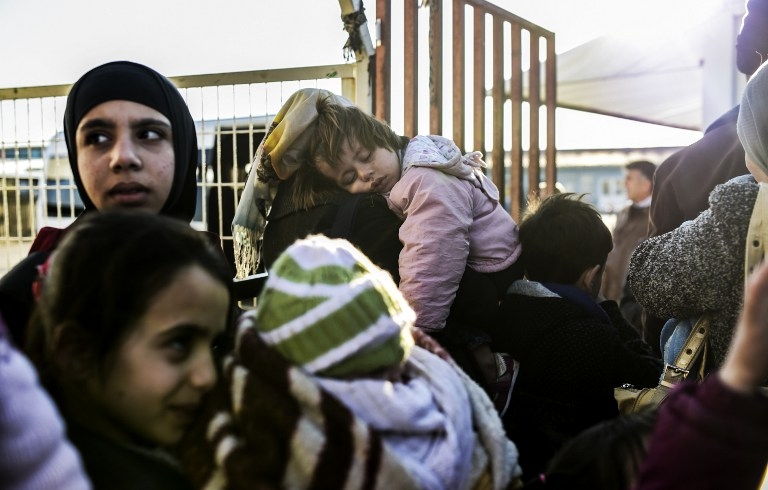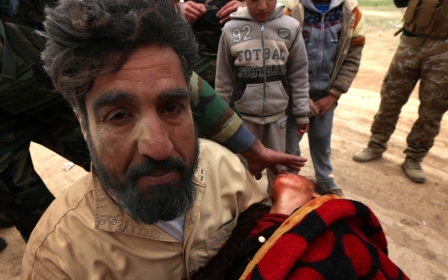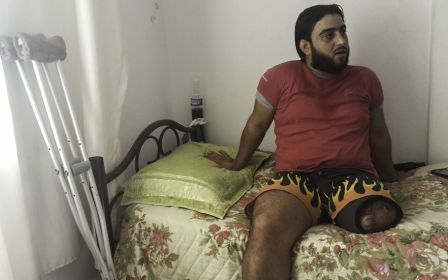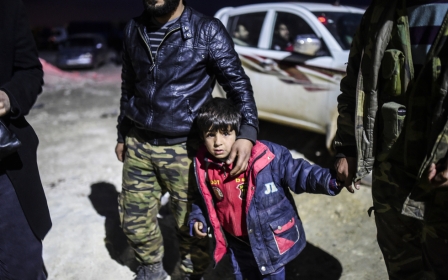At least 30,000 Syrians flee clashes between IS, rebels in Syria: HRW

At least 30,000 civilians have fled fighting between armed groups and anti-government rebels in northern Syria in the past 48 hours, Human Rights Watch said on Friday, calling on Turkey to open its border to them.
The watchdog accused Turkish border guards of shooting at some of those displaced from the Aleppo province which has seen fierce fighting break out in much of the northern province.
Turkey, a year ago, began rejecting all but the most seriously injured Syrians. The country is already hosting millions of refugees in camps as they await the chance to get to the EU.
"As civilians flee ISIS fighters, Turkey is responding with live ammunition instead of compassion," said HRW researcher Gerry Simpson, using another acronym for IS.
"The whole world is talking about fighting ISIS, and yet those most at risk of becoming victims of its horrific abuses are trapped on the wrong side of a concrete wall."
Turkey has denied the accusation.
HRW said many of those who fled from IS advances were residents of emergency camps set up along the border who headed for other camps or nearby towns and villages even though they were still unsafe.
Others chose to stay in the camps that lay in IS's path for fear they would not be able to find shelter elsewhere.
“Turkey’s closed border is forcing Syrian men, women, and children to dig ditches and hide to escape the horrors of war,” Simpson said. “Turkey’s attempt at creating a so-called safe zone is a terrible joke for civilians cowering underground and desperate to escape Syria,” he added, referring to Turkey's plans to create a "safe-zone" in Syria to where they can return refugees.
It comes as escalating fighting between Russian-backed government fighters and rebels around the provincial capital Aleppo city threatens a nearly seven-week ceasefire that had seen violence drop significantly for the first time in the five-year conflict.
At least 210 fighters on all sides have been killed around Aleppo this week, according to the Syrian Observatory for Human Rights.
Among those killed were 82 army troops and pro-Assad militiamen, 94 members of the al-Qaeda affiliated al-Nusra Front and allied rebel groups, and 34 Islamic State militants.
Troops and militiamen loyal to the government have been clashing with Islamic State group southeast of Aleppo city this week, and have also battled al-Qaeda-affiliated Al-Nusra Front and allied rebels in the flashpoint area of Handarat north of Aleppo city, the Observatory said.
Meanwhile IS fought other rebels near the Turkish border, it added.
The sudden spike in violence has threatened to derail peace talks that are due to get under way in Geneva this week. A government delegation arrived in the Swiss city on Friday but it is unclear if negotiations have officially begun yet.
"What is happening in Aleppo is a major violation of the ceasefire," rebel commander Major Eyad Shamsi told AFP in Geneva, blaming the government.
"A big battle is being fought in Aleppo, and it will lead to a major disaster should the regime succeed" he said while stressing that a million people could come under siege again in parts of Aleppo if the government makes further gains.
Salim al-Muslet, spokesperson for the HNC, also told Al Jazeera there was "no place for Assad" in the new set-up.
"I believe we're doing the right thing for our people," Muslet told the news channel from Geneva. "The other side, the government, was forced to come here, they don't care about our people. We don't want to see any more fighting and killing. It's important that we find a solution here in Geneva. But there's no place for Assad or people around him who committed crimes in Syria. For us, it's important to have people who care about their own people who deserve to see an end to this nightmare."
Over five years, the Syrian civil war has killed more than 270,000 people and displaced half the population.
Middle East Eye propose une couverture et une analyse indépendantes et incomparables du Moyen-Orient, de l’Afrique du Nord et d’autres régions du monde. Pour en savoir plus sur la reprise de ce contenu et les frais qui s’appliquent, veuillez remplir ce formulaire [en anglais]. Pour en savoir plus sur MEE, cliquez ici [en anglais].




